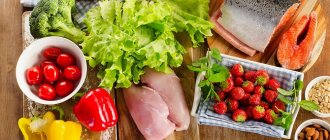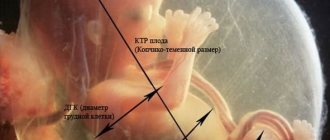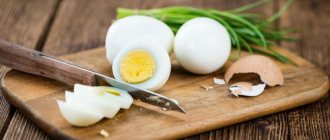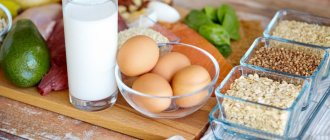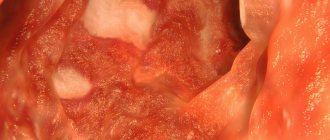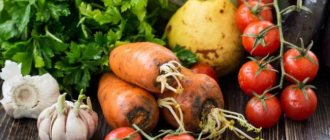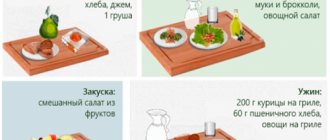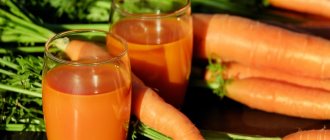Which products should you prefer?
The amount of nutrients and energy necessary for the expectant mother is provided by the following products:
- Meat and meat products, poultry, fish, eggs, legumes
- Milk and dairy products - kefir, fermented baked milk, yogurt, cottage cheese, sour cream, butter
- Vegetables, greens, fruits, berries, juices
For vegetables, it is preferable to use zucchini, squash, eggplant, pumpkin, beets, carrots, cauliflower, white cabbage, Brussels sprouts, broccoli, tomatoes, cucumbers, green peas, beans, potatoes, tomatoes, lettuce, celery, dill, parsley, etc. It is allowed to use frozen vegetables and fruits. In the diet, vegetables are allowed up to 500 g per day, fruits and berries up to 300 g, including dried fruits - prunes, dried apricots, raisins, figs. It is advisable to drink a variety of juices, especially those with pulp, fruit drinks, and compotes.
- Bread, bakery products, buckwheat, corn, oatmeal, rice, millet, etc. porridges, pasta. The amount of confectionery products should be limited to 50–60 g per day
- Sunflower, corn, olive and other vegetable oils, which are added to salads, vinaigrettes and other dishes
Nutrition for a pregnant woman
So, your plans and decisions to have a baby have come true - you are pregnant! But this news gives you a double feeling: on the one hand, a feeling of joy, and on the other, a feeling of certain apprehension and even fear of unknown trials for your life and the fate of the unborn baby. What will it be like? - healthy, beautiful, happy?...
And this largely depends on the woman herself, on what kind of life she will lead during pregnancy and, most importantly, how she will eat.
A woman’s diet during different periods of pregnancy
The main thing in the menu of the expectant mother is variety. She should eat foods from all food groups: meat, fish, vegetables and fruits, dairy products, bread and cereals.
A woman’s diet during pregnancy can be divided into three periods (trimesters).
If before pregnancy a woman ate normally, felt comfortable, and did not experience allergies to any foods, then at the early stage of the first trimester of pregnancy there is no need to change her diet.
During this period, all organs and systems in the child’s body are formed, tissues are formed. The body needs complete proteins and vitamins: lean meat (rabbit, chicken, turkey), fish and seafood, dairy products. Be sure to eat rice, fresh or frozen vegetables, and seasonal fruits. In the first trimester, many expectant mothers are still working. No matter how difficult it is to control your diet in a work environment, you need to do it - find time for a full breakfast and lunch.
In the first trimester of pregnancy, the body is actively restructuring and adapting to a new state. During this period, it is recommended to switch to a low-calorie diet, including more fruits, juices, and decoctions of dried fruits, including rose hips. At the very beginning of pregnancy, especially if toxicosis is tormented, more frequent, but less heavy meals are recommended.
Always have a hematogen in your pocket, a bag of nuts or dried fruits for a snack on the street. If your condition does not allow you to eat regular food, you should pay attention to baby food. Baby products literally save expectant mothers suffering from severe toxicosis. These are boxed cereals, children's curds, cookies and fruit purees.
In the first trimester, it is necessary to pay special attention to the quality of products. Gradually give up sauces, semi-finished products and canned food containing harmful chemical additives. Do not forget that the placenta freely accumulates and passes chemicals. Products containing folic acid are of great importance; without it, intensive metabolism is impossible; its deficiency can cause developmental abnormalities. Folic acid is found in greens, nuts, cabbage and broccoli, beets, legumes, and eggs.
According to nutritionists, the diet of pregnant women should be 300 kcal/day higher than that of non-pregnant women, but in the first trimester there is no need to increase the energy value of the diet; in the second trimester an additional 340 kcal/day is required; in the third trimester – 452 kcal/day. Pregnant women generally get enough calories, and more than 80% of women achieve or exceed their required weight gain. These extra calories benefit the fetus. An underweight woman should gain 16–20 kg throughout pregnancy, an overweight woman should gain about 7 kg, and a normal body weight woman should gain 11–12 kg.
In the second trimester, there are active changes in the growth and weight of the child and the uterus, so the calorie content of the diet must be increased. It is advisable to eat more and better. At this time, the need for microelements increases: iron, magnesium, zinc, selenium, calcium, potassium. The child creates his own “reserve” of microelements using the mother’s resource, which means that the mother should have enough for two.
Very often, in pregnant women, hemoglobin drops in the second trimester; this is a normal physiological phenomenon, if it is not threatening to health. You can increase hemoglobin by eating red meat, chicken, fish, dried fruits, pomegranates, green vegetables and fresh herbs, buckwheat, citrus fruits (oranges, grapefruits, pomelo, lemons), infusions of rose hips and berries.
In the second trimester, a pregnant woman needs to limit the consumption of smoked and fried foods, as well as salt, in her diet. Under no circumstances should fluid be restricted. Pure water is the best drink for a pregnant woman, and you should drink up to 2-2.5 liters of water per day. Water is a natural drink for the body; it does not cause complications and has no contraindications. Swelling is caused not by water, but by salt, which we not only add in its pure form, but also consume with canned food, mayonnaise, cheese, and sausage. The absence of salt is not harmful; it is naturally found in many foods: vegetables, bread, so your diet will not be completely without it. Excess salt disrupts metabolism.
During this period, you can increase the caloric content of food. You need to approach childbirth physically strong. It is better to eat meat and fish in the first half of the day, for breakfast and lunch, and for dinner prepare dairy-vegetable dishes: cheesecakes, stewed vegetables, cottage cheese and vegetable casseroles. It is necessary to minimize the intake of canned food, smoked meats, pickles and marinades, hot seasonings and fatty foods. Frequent walks in the air and physical activity are recommended.
In the third trimester, it is necessary to reduce the calorie content of foods through confectionery and flour products, eat less fatty meat, as well as cheese and sour cream.
Towards the end of this period, many experts advise pregnant women to give up meat altogether to increase tissue elasticity and prevent ruptures.
During the entire period of pregnancy, special attention should be paid to the combination of products. If you combine foods wisely, you can ensure more efficient absorption of food. If food is poorly digested, this can lead to rotting and fermentation of foods and the formation of substances harmful to the body of the mother and child. In addition, the fermentation process is accompanied by gas formation, which can lead to flatulence (bloating) and discomfort. This is especially harmful in the last stages of pregnancy.
Try not to take the first, second and third courses at one time; this fills the stomach and puts pressure on the fetus, food is poorly digested and poorly absorbed. Eat little and often. It is not recommended to eat food immediately before starting work, a long walk, before exercise and immediately after it; It is advisable to rest for 10 minutes before eating.
Eat only when you are hungry, try not to snack on the go. Follow a diet, eat at approximately the same time.
Proper cooking will help preserve the nutrients contained in foods as much as possible. Do not overcook foods, try not to reheat the same dish several times, it is better to set aside only the portion that will be used. Cook in the most gentle way possible: baking, steaming, stewing. Avoid frying or cooking in large amounts of water; with this method of processing food, many useful substances are lost. If possible, do not cook for several days at once. Do not use aluminum cookware when preparing food. Remember that for a pregnant woman it is not calories that are important, but the quality of food, its naturalness, first of all, “living cells” (whole grains, raw vegetables and fruits, fresh meat and dairy products).
What can harm a pregnant woman and her fetus?
Smoking and alcohol - from the first days of pregnancy, stop smoking if you have smoked before, avoid “passive” smoking, and do not drink alcoholic beverages in any doses.
Lack of vitamins and microelements in the body - their absence or deficiency can lead to irreparable consequences. For example, iodine deficiency can lead to mental retardation in a child, folic acid deficiency can lead to severe fetal deformities, calcium deficiency can lead to impaired formation of the child’s skeleton, iron deficiency can lead to anemia and delayed physical and neuropsychic development of the child. You should consult your doctor; he may recommend switching to iodized salt, as well as supplementing your diet with a vitamin-mineral complex and folic acid.
Excess weight is a risk of having a large child, which means the risk of complications during childbirth and the child’s tendency to become obese at an older age.
The use of food additives (sauces, seasonings such as vegeta, bouillon cubes), exotic fruits, semi-finished products, carbonated drinks - the risk of allergies and abnormalities in a child, unfortunately, increases from this.
Recommended for pregnant women:
- Do not eat hot dogs or other snacks containing meat that has not been heated over a fire or boiled in boiling water.
- Avoid eating soft cheeses. Hard cheeses are safe.
- Do not eat frozen pates, meat pastes, or seafood raw. Canned analogues are safe.
- Do not consume raw vegetables, unpasteurized juices, liver, meat, poultry and eggs that have not undergone sufficient heat treatment. These products may contain Salmonella taxins.
- Limit your consumption of sweets.
- Under no circumstances should you resort to fasting or various diets.
- Regularly monitor your blood pressure and do not miss visits to your gynecologist.
Remember! The development of
Your child and his health!
Healthy food plate
The main meal should include:
- 1 serving of protein product (meat, fish)
- 1 serving of starchy food (pasta, potatoes)
- 2 servings of vegetables + 1 fruit + 1-2 servings of dairy products
Today it is believed that there should be no special diet to prevent the development of food allergies in a child. On the contrary, it has been proven that artificial avoidance of certain foods can provoke the paradoxical development of an allergy in a baby to this particular product, because he was not introduced to it while in his mother’s tummy. The diet should be as varied and complete as possible.
Features of nutrition of a nursing mother
After giving birth, the young mother remains the main source of nutrition for her baby for some time, provided that she breastfeeds him. In addition, the nutrition of a nursing mother directly affects the speed of her postpartum rehabilitation, mood and energy during the day.
To ensure that milk is healthy and high in calories, and also gives the newborn satiety and health, the following rules should be followed during breastfeeding:
- The average caloric intake during breastfeeding after childbirth should be in the range of 2600-2700 kcal. It is not worth increasing the energy value of the diet, as this is fraught with excess weight gain or problems with postpartum weight loss.
- Breastfeeding products that a woman eats should not contain harmful food additives and preservatives. You should give up fast food, junk food, processed foods, and most factory canned foods.
- All foods that affect the child’s gastrointestinal tract should also be excluded from the diet until the baby’s healthy intestinal microflora is fully formed (this takes from a month to six months). These include all spicy, smoked, fatty and overcooked foods, foods that cause fermentation in the stomach (legumes, sauerkraut, etc.) or increase the acidity of gastric juice.
- It is also better to exclude allergenic foods and add them to the diet as the child grows older, and then in small quantities and with an allergy test. These foods include citrus fruits, nuts, chocolate, seafood, honey, egg yolks, vegetables and brightly colored fruits (orange and red).
- Breastfeeding nutrition should be fully balanced in terms of nutritional supplements, vitamins and minerals, and contain enough iron, calcium, magnesium, B vitamins and healthy fatty acids.
- The emphasis is on fractional meals 4-6 times a day in small portions at the same time.
- Strict food restrictions, mono-diets, fasting days and fasting days during lactation are prohibited, as they can lead to a decrease in the calorie content of milk or its complete disappearance.
- Alcohol and tobacco are completely excluded.
- It is also better to postpone dishes with aromatic seasonings for the future, since garlic, peppers and onions can affect the taste of milk.
- All food that a young mother eats must be fresh and of high quality.
- Drinking regimen during breastfeeding is more important than ever, because dehydration immediately reduces the amount of breast milk produced. You need to drink 2-3 liters of clean still water per day.
- New products and dishes should be introduced gradually into the menu of a nursing mother; it is advisable to avoid eating exotic dishes during breastfeeding.
Want to know how to lose weight while breastfeeding? Then watch this video from an experienced nutritionist, psychotherapist and founder of the School of Dietetics at the Wellness Consulting Academy Lara Serebryanskaya:
What should be limited/excluded?
- All types of alcoholic drinks
- Limit caffeine to 200 mg per day (roughly equivalent to 1-2 coffees per day)
- Herbal teas - with caution
- Salt and salty foods (2-3 trimester)
- Canned food
- Synthetic food colors and fast food
Given the increased need for vitamins and minerals, pregnant women should take vitamin and mineral complexes. Unfortunately, their content in natural products is insufficient, especially in the winter and spring. Specialized products have an advantage over vitamin-mineral complexes, since they contain an optimal set of nutrients, vitamins, macro- and microelements.
(29 ratings; article rating 4.1)
Share Share Share
Learning to eat healthy during pregnancy
Women can make many common mistakes during pregnancy. Every mother should know the basic rules and features of nutrition during this “special” stage of life1,2.
Eat regularly
Pregnant women have a very capricious appetite. “Today I don’t feel well in the morning, I have no appetite - I won’t eat anything. In the evening I get hungry - I “attack” the refrigerator and sweep away everything.”
This approach is fundamentally wrong. If a pregnant woman eats irregularly, from time to time, she will constantly have digestive problems: constipation, heartburn, bloating. To avoid this, you should stick to the regime. Even if there is no appetite at all, you need to eat at least a little at the right time.
Follow the regime
“In the middle of the night I woke up with a ravenous appetite. I go to the refrigerator and eat everything: yesterday’s pilaf, buns, a piece of cake and herring with orange juice.” This behavior is familiar to many pregnant women.
Usually women indulge their weaknesses during the period of bearing a child, and this is completely in vain. Abundant night snacks lead to disturbances in the digestive tract and the gain of extra pounds.
If you feel like having a snack late in the evening or even at night, it is better to drink a glass of low-fat kefir or yogurt. This will help relieve the feeling of hunger, you will be able to fall asleep easily, and there will be no heaviness in your stomach.
Drink more water
A pregnant woman's body reacts very sensitively to any deviations in nutrition. If a woman eats dry food, her risk of constipation, gastritis and other gastrointestinal diseases increases significantly. To keep your digestive system working like a charm, it is important to regularly eat liquid foods and drink enough fluids (water is best). Light soups made from lean meats and fish are always a priority.
The rate of water consumption depends on the characteristics of the woman’s body and the duration of pregnancy, but on average it is recommended to consume at least 2300 ml of liquid per day.
Sugary carbonated drinks should be completely avoided. It is better to prepare homemade fruit drinks, compotes and herbal teas. You should also avoid strong tea and coffee.
Breakfast is an important start to the day
The first meal of the day “launches” the entire digestive system and awakens the entire body. Neglecting breakfast leads to overeating during the day or evening and has an adverse effect on the pregnant woman’s body. If you feel nauseous in the morning and don’t feel like eating at all, then you can drink a little yogurt or fruit drink.
Avoid spicy and salty foods
The first months of pregnancy are usually accompanied by a strong craving for “spicy” and “salty” foods. It is advisable, but not necessary, to completely avoid spicy and overly salty foods during pregnancy - it is important to know when to stop. Salty and peppery foods can lead to heartburn and fluid retention in the body of a pregnant woman.
Keep it in moderation
I eat for two. This is a favorite nutritional principle for many pregnant women. Eating for themselves and the baby, they often exceed all acceptable standards so much that in a short time they gain an extra 10-15 kg.
This is a fundamentally wrong approach. In the first trimester, the baby growing in a woman’s belly is still very tiny. He doesn't need an adult portion of food. Mom needs to eat nutritiously and variedly, but in moderation, focusing on the quality of nutrition, not quantity.
The onset of pregnancy is an important reason for a pregnant woman to reconsider her eating habits and switch to a balanced diet.
Calorie content of a pregnant woman's daily diet
should be 2500-2600 Kcal. If you are under 25 years old, tall and slim, then your daily calorie intake can be 3300-3500 kcal. For female athletes, calorie standards are even higher. In the first trimester of pregnancy, you don’t have to change anything in this regard. But if you are not an athlete and your weight (kg) is greater than your height (cm) minus 100, then reduce the calorie content of your food from 3300 to 2500 kcal. Do this with pastries, butter, sour cream or bread. Replace tea buns with crispy breads with dietary fibre. If you consume milk and fermented milk products with reduced fat content (0.5 -2.5%), you will stay slim and get more calcium. Calcium is absorbed better from low-fat dairy products.
Nutrition during pregnancy 1st trimester
You need to eat at least 600 g of vegetables per day (mostly raw) and at least 400 g of berries and fruits. In autumn these numbers are much higher. Watermelons, melons, apricots, and apples will immediately triple the recommended amount, and that’s great. A small portion (120 g) of a salad of 2 mixed vegetables for breakfast is exactly 110 g of vegetables. An incomplete plate of borscht (300 g) - another 150 g of vegetables, plus a tablespoon of green peas for the second course - 50 g. Did you have a snack of grated carrots with walnuts, raisins and sour cream? Add another 150 g. Vinaigrette for dinner - 200 g. That's 690 g of vegetables. But the expectant mother also needs greens and freshly squeezed vegetable juice. Now you can be sure that you have received all the necessary minerals. The more varied the set of vegetables on your menu, the better.
Proteins are the main component of nutrition. Moreover, the expectant mother especially needs complete proteins containing all the vital amino acids. In the first trimester of pregnancy, 100-110 g of protein per day is sufficient, and at least 50% of this amount comes from animal products. The expectant mother does not have to eat meat every day. Plant proteins should not be discounted just because the set of amino acids in them is not complete. It is also not optimal in milk. But if you pour milk into a plate with crumbly buckwheat porridge, you get a complete protein set. Include liver dishes in your diet at least once a week, or better yet, twice. In addition to animal proteins and iron, the liver contains a lot of vitamins and vitamin-like substances that are necessary for both the unborn baby and the mother.
Fats and carbohydrates. Vegetables and bread in your diet contain the right amount of carbohydrates, and animal products contain the optimal amount of fat. Vegetable oil is sufficient in vinaigrette and salads. Some vegetable oil and butter were used in cooking. Butter is added to purees and porridges. If you wish, you can put a piece of butter on the sandwich.
Attention! Avoid high-heat processed fats. Fried foods, baked goods, butter cookies, cakes - they all create additional stress on the liver and bile excretion system (it is very vulnerable during pregnancy).
Carbohydrates are not all created equal either. The human body has adapted perfectly to the so-called complex carbohydrates over millions of years. Complex carbohydrates are the basis of our diet: grain bread, rye bread or with the addition of bran, as well as whole grains, potatoes and other vegetables. Simple carbohydrates (sugar and sweets, white bread made from fine flour, jelly, etc.) are absorbed into the blood almost instantly. People with a sweet tooth sometimes have to pay for their addictions with various disorders in the body. We must not forget about the threat of diabetes: for the expectant mother, both the liver and the pancreas work for two.
